Japan's provocative moves
Updated: 2014-01-20 17:21
(chinadaily.com.cn)
|
||||||||
The Japanese education ministry has made plans to incorporate Japan's claim to the Diaoyu Islands into teaching manuals for the nation's high schools, Japan's NHK national television channel reported on Jan 12.
Related: Diplomats, analysts blast Tokyo over islands
Abe has ordered Japan's Ministry of Foreign Affairs to require embassies around the world to fight back and publicize his pledge of "no war" during the pilgrimage, Japan's Jiji news agency confirmed on Jan 10.
Related: Japan tries to justify Abe's shrine visit
In an article published in the Daily Telegraph on Jan 5, Japanese Ambassador to the United Kingdom Keiichi Hayashi said China risks playing "the role of Voldemort in the region by letting loose the evil of an arms race and escalation of tensions, although Japan will not escalate the situation from its side".
Related: Tokyo urged to end militarism
Japanese Prime Minister Shinzo Abe said on Jan 1 that the pacifist post-World War II Constitution could be amended by 2020.
"As it has been 68 years since its enactment now, national debate should be further deepened toward a revision to grasp the changing times," he said.
Related: New Year's wishes from leaders
On Dec 26, 2013, Japanese Prime Minister Shinzo Abe visited the notorious Yasukuni Shrine that worships Japanese Class A war criminals.
Related: Japanese PM under fire at home
Japan agreed on Dec 17 to spend more to boost its military in the coming years, a move that experts believe aims to counter China's rising influence in the region.
The planned 5 percent increase over five years reverses a decade of decline and marks the clearest sign since Prime Minister Shinzo Abe took office a year ago that he wants a bigger military role for Japan.
Related: Japan seeks bigger role for military
The lower house of the Japanese Diet on Dec 6 adopted a resolution urging China to rescind its recent establishment of the East China Sea Air Defense Identification Zone.
Related: Top legislature rejects Japanese resolution on ADIZ
In an exclusive interview with The Wall Street Journal on October 25, Abe even said he envisioned a resurgent Japan, which will take a more assertive leadership role in Asia to counter China's power.
Related: Abe's dangerous dream of constitutional revision
In May 2013, Japanese Prime Minister Shinzo Abe caused great offence in China and Korea when he was photographed posing in a military jet boldly marked with the number 731: this was the code of an infamous Japanese biological warfare research facility performing human experiments in China during the war.
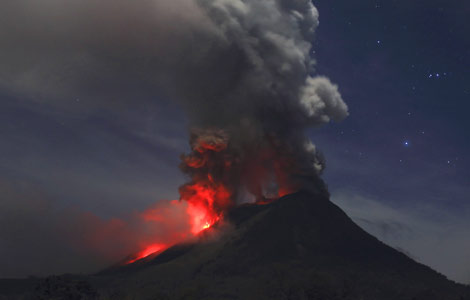
 Mount Sinabung erupts
Mount Sinabung erupts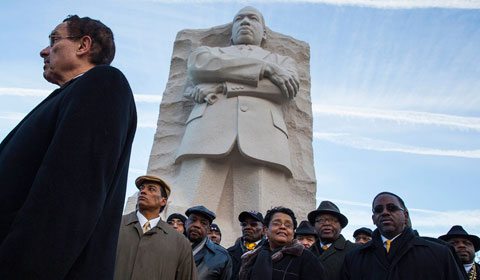
 Commemorations to honor Martin Luther King Jr.
Commemorations to honor Martin Luther King Jr.
 Thrillseeker enjoys the hammock in the sky
Thrillseeker enjoys the hammock in the sky
 Babies baptised during a mass ceremony
Babies baptised during a mass ceremony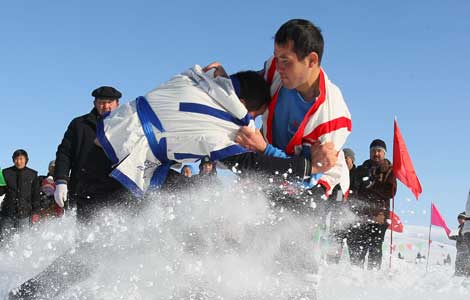
 Winter cultural festival opens in Xinjiang
Winter cultural festival opens in Xinjiang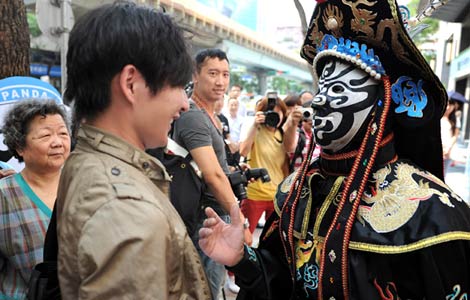
 Air travel to Taiwan continues to take off
Air travel to Taiwan continues to take off
 Panda cub in Washington makes her public debut
Panda cub in Washington makes her public debut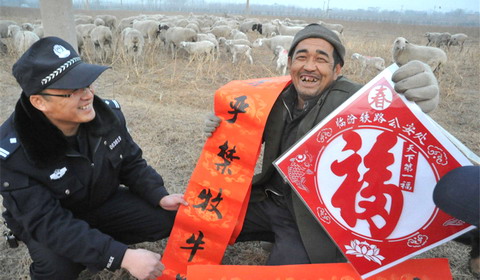
 Spring Festival preparations across China
Spring Festival preparations across China
Most Viewed
Editor's Picks

|

|

|

|
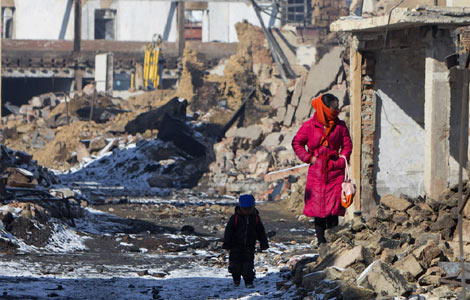
|

|
Today's Top News
Memorial hall reflects on Japan's aggression
Missionary wants US to get him home
Tech park visits Bay Area
US may be losing in globalization
Students develop apps for campus life
Three dead in China food poisoning
Beijing blood donations drop
US commemorates Martin Luther King Jr.
US Weekly

|

|





